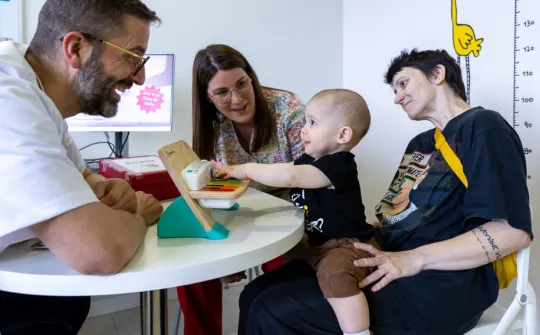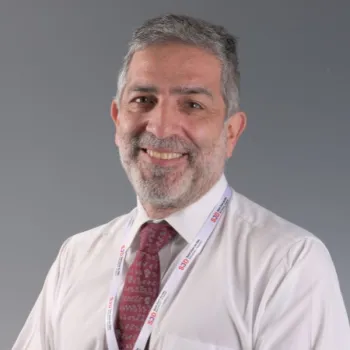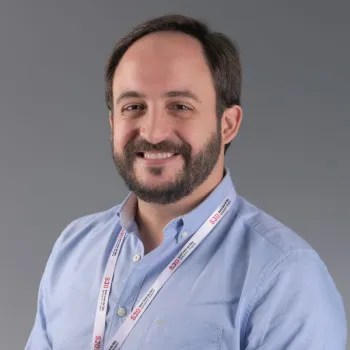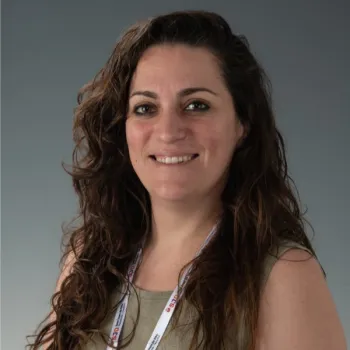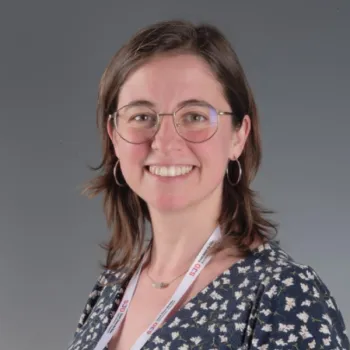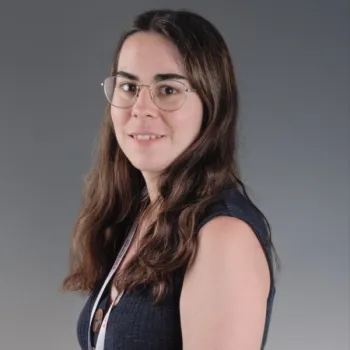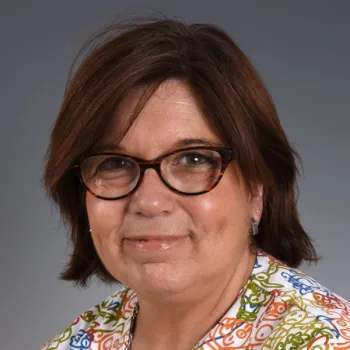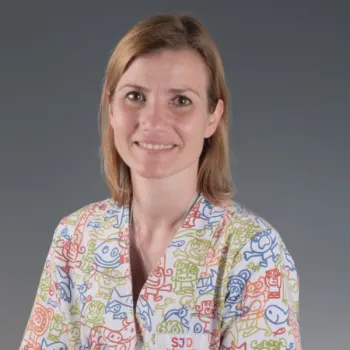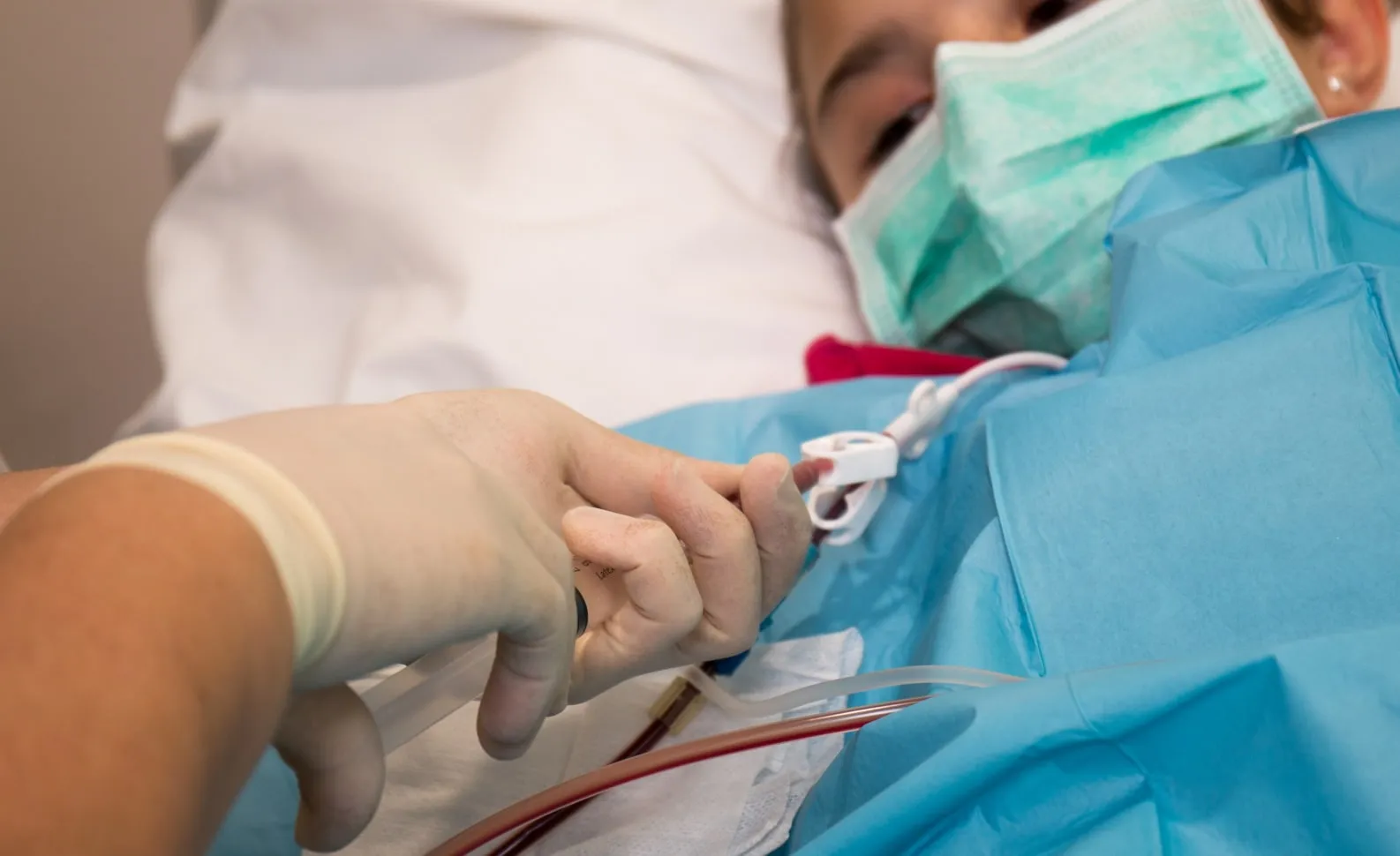
We treat diseases related to the kidneys in the pediatric age group.
The SJD Barcelona Children's Hospital is one of Spain's most experienced facilities in treating childhood kidney diseases. In the Nephrology Department, we tend to patients from all over Catalonia. For patients from other regions who need a second opinion, we offer quick consultations with minimal time on the waiting list.
We have over 50 years under our belt being trusted and recognised across Spain, and more and more outside of our borders. We receive requests for specialisation placements in Pediatrics from medical professionals around the world, particularly from Central and South America.
We are co-founders of the Spanish Pediatric Nephrology Association and have been members since its inception. Likewise, we have a close partnership with the Spanish Society of Nephrology (SEN) in all aspects relating to childhood kidney diseases.
Accreditations
- ERKNet of European facilities specialising in rare kidney diseases.
- ERN TransplantChild for transplants in children.
- CSUR accreditation for pediatric kidney transplantation and another in complex glomerular diseases.
- XUEC for the provision of care to patients with rare and complex kidney diseases, created by the Catalan Health Service.
Why the SJD Barcelona Children's Hospital?
Our specialists across several departments and units work together to offer the best care to our patients.
Our multidisciplinary focus
Specialists from different services and units work in coordination to offer the best care to our patients
- We work closely with other specialists from SJD Barcelona Children's Hospital, including with the departments and units of Urology, Intensive Care, Neonatology, Nutrition, Oncology, Haematology, Mental Health, Rheumatology, Genetics, Laboratory and Diagnostic Imaging.
- 70% of all the children we treat have rare diseases, and we work closely with the Hospital's Institute for Rare Childhood Disorders (IPER).
We adapt our treatments to the needs of the pediatric patient and their family.
Always patient-centred
We adapt our treatments to the needs of the pediatric patient and their family
- We work to minimise the impact of haemodialysis on children's daily lives. Peritoneal dialysis allows treatment to be done at home. Since 2000, we have led the way in paediatric continuous ambulatory peritoneal dialysis in Catalonia.
- We promote living-donor transplantation. A quarter of the transplants we perform are from living donors, thus preventing the child from having to do dialysis.
- We advise and guide paediatricians from other hospitals, which makes us a reference and support centre. We are in continuous contact with other local paediatricians and primary care paediatricians, to prevent our patients from having to travel long distances to our Hospital. Our goal is to be able to treat any condition, however rare and serious, at the patient's local centre by the nearest paediatricians, advised accordingly by us.
- We make every effort to avoid having to admit the child to hospital, except in cases where it is absolutely essential. Our mission is to keep the dynamics of family and school as normal as possible. Many patients with rare, severe and chronic illnesses, after years of the disease, were admitted to Hospital only during diagnosis.
Specialisms and services
In Prenatal and Neonatal Pathology, we detect and treat diseases and malformations of the kidney and urinary tract (Nephro-Urology) in the prenatal period (before birth). We work hand-in-hand with the Neonatology, Obstetrics, Urology and Surgery Departments in the BCNatal programme.
In situations where it is not possible to get a kidney transplant before dialysis, we aim for peritoneal dialysis as our first option. Whenever possible, we reserve hemodialysis for patients who cannot receive peritoneal treatment, or when it is not indicated.
Diseases we treat
Treatments we offer
Team
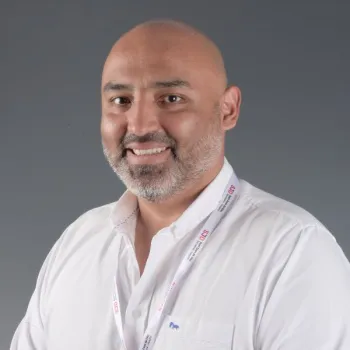
Research and clinical trials
We are involved in various pediatric studies and clinical trials being developed in the industry or by the Spanish Society of Nephrology, including those deriving from other adult hospital services. In particular, we have a very close investigative relationship with Hospital Clinic Barcelona, with whom we research kidney transplantation.
Multicentre and collaborative studiesREPIR 2, REPIR 1 and REMINThe anonymised data contained in these three patient registries allow us to evaluate the situation regarding kidney patients in Spain, assessing dialysis techniques and transplant results—organ donation, events that have occurred, duration of implant, rejections, etc. With these results, the National Transplant Organisation can compile its yearly public report.
More informationResearch and clinical trialsREPIR 2, REPIR 1 and REMIN
These three patient registers, which contain anonymous data, help to assess the status of patients with kidney disease in Spain, methods of dialysis and transplant outcomes: organ donation, events that occurred, duration of graft, rejection, etc. With these results, the National Transplant Organisation can draft the annual public report.
- EPIR 2: Spanish Register of patients with chronic kidney failure before receiving replacement therapy.
- REPIR 1: National Register of patients on replacement therapy, dialysis and transplantation.
- REMIN: Register of patients with chronic kidney failure in Catalonia.
Collaborative studiesTransition to Adult hospital facilities, clinical trials, multicentre studies, etc.
We take part in the following national congresses: European Society for Paediatric Nephrology (ESPN), International Pediatric Nephrology Association (IPNA), European Renal Association (ERA), Spanish Pediatric Nephrology Association (AENP), Catalan Society of Nephrology (SOCANE), Spanish Society of Nephrology (SEN), etc.
The anonymised data contained in these three patient registries allow us to evaluate the situation regarding kidney patients in Spain, assessing dialysis techniques and transplant results—organ donation, events that have occurred, duration of implant, rejections, etc. With these results, the National Transplant Organisation can compile its yearly public report.
REPIR 2, REPIR 1 and REMIN
These three patient registers, which contain anonymous data, help to assess the status of patients with kidney disease in Spain, methods of dialysis and transplant outcomes: organ donation, events that occurred, duration of graft, rejection, etc. With these results, the National Transplant Organisation can draft the annual public report.
- EPIR 2: Spanish Register of patients with chronic kidney failure before receiving replacement therapy.
- REPIR 1: National Register of patients on replacement therapy, dialysis and transplantation.
- REMIN: Register of patients with chronic kidney failure in Catalonia.
Transition to Adult hospital facilities, clinical trials, multicentre studies, etc.
We take part in the following national congresses: European Society for Paediatric Nephrology (ESPN), International Pediatric Nephrology Association (IPNA), European Renal Association (ERA), Spanish Pediatric Nephrology Association (AENP), Catalan Society of Nephrology (SOCANE), Spanish Society of Nephrology (SEN), etc.
Teaching
The SJD Barcelona Children's Hospital is a university hospital affiliated with the University of Barcelona. We share our knowledge and train professionals so that they can go on to specialise in high-complexity medicine.
Specialised training for internal medical residents (MIR)
We are a reference centre for rotations of Nephrology residents from adult hospital facilities: Hospital Clinic (Barcelona), Hospital de Terrassa, Hospital Trueta (Girona).
We are a reference pediatric healthcare centre in the training of Pediatrics residents for their placement cycles in Pediatric Nephrology: Hospital Trueta, Hospital de Manresa, Hospital Virgen de la Cinta (Tortosa), etc.
We are a reference centre for training in Pediatric Nephrology for centres in Latin America: Argentina, Colombia, Venezuela, Costa Rica, etc.
We train residents in Pediatrics at the SJD Barcelona Children's Hospital in the Nephrology specialism. We carry out clinical sessions as part of our teaching plan. We offer the option of training in Nephrology in one of two ways: as per a long plan or a short plan.
We have offered the first and only in-person Master’s in Pediatric Nephrology programmes in Spain, in partnership with the University of Barcelona (UB) since 2018.
We are an international training centre in pediatric nephrology as part of the Fellowship Program and a partner hospital for developing countries involved in the Sister Renal Centers Program, both of which are organised by the International Pediatric Nephrology Association (IPNA).
